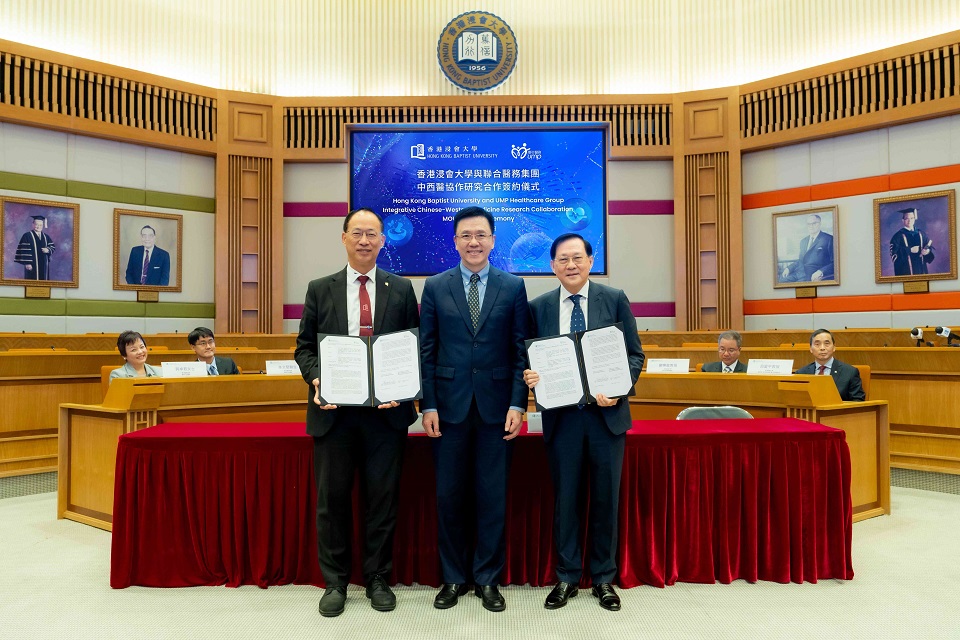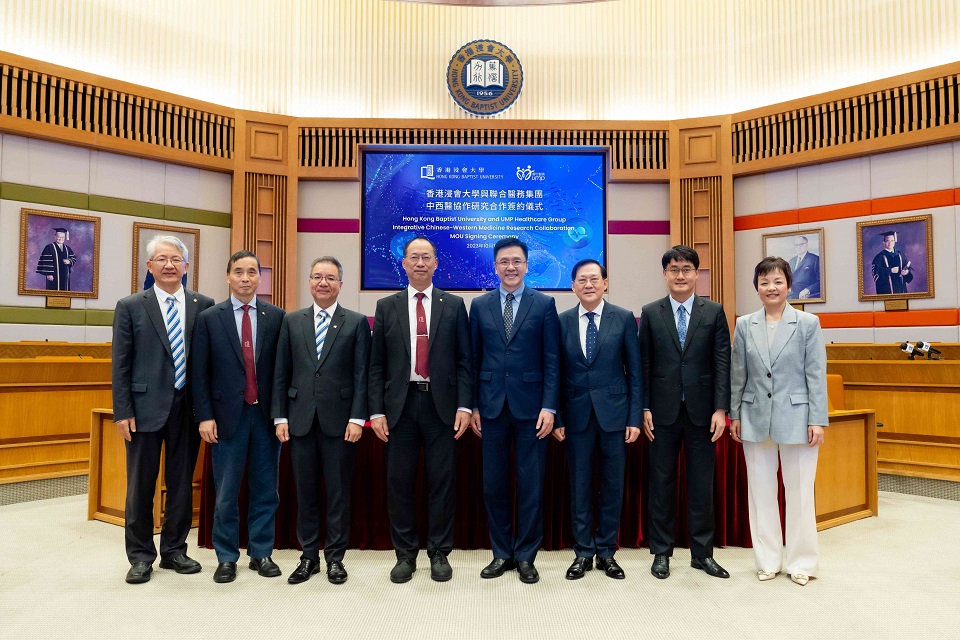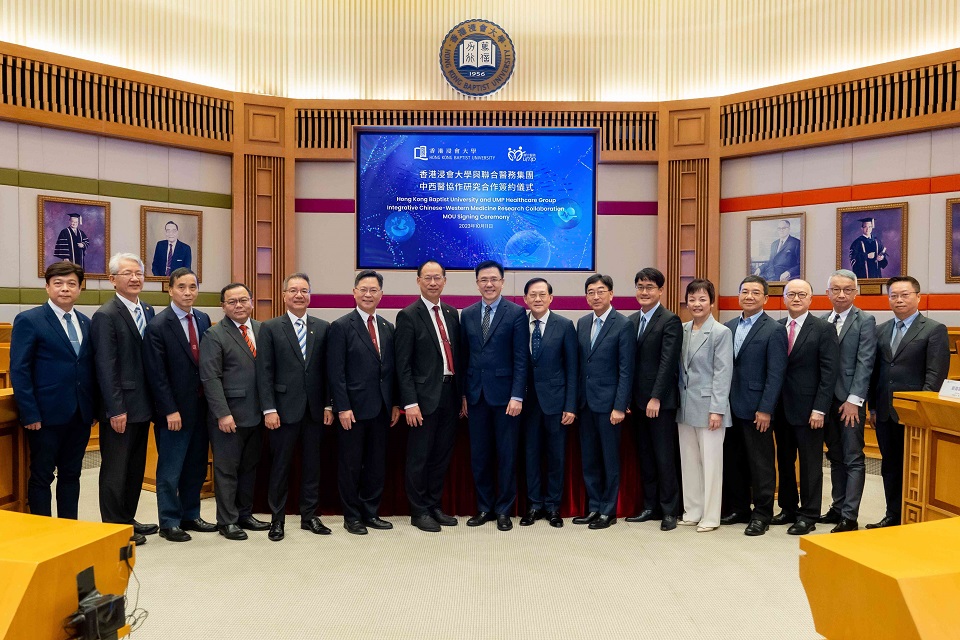Discover HKBU
Transforming healthcare with integrative Chinese-Western medicine
31 Oct 2023
HKBU and UMP Healthcare Group (UMP) signed a Memorandum of Understanding (MOU) to jointly explore potential models of integrative Chinese-Western medicine through research. By providing scientific data support and developing innovative technologies for integrative Chinese-Western medicine, it offers the prospect of achieving the best clinical diagnosis and treatment effects for the benefit of patients.
Under the MOU, the “Integrative Chinese-Western Medicine Research Collaboration” will be launched to initiate multiple clinical and translational research projects in different healthcare areas, such as oncological treatment, through studies on their efficacies and safety. The collaboration will explore the development of innovative treatment protocols through Chinese-Western medicine consultation and collaboration, and study the scientific approach of integrative Chinese-Western medicine.
The MOU was signed by Professor Alexander Wai, President and Vice-Chancellor of HKBU, and Dr Sun Yiu Kwong, Chairman of UMP. The signing ceremony was honoured by the presence of Professor Sun Dong, Secretary for Innovation, Technology and Industry of the HKSAR Government as witness. Dr Ko Wing-man, Member of the Executive Council, Professor Chan Wing-kwong, Member of the Legislative Council, Professor Lyu Aiping, Vice-President (Research and Development) cum Dean of Graduate School of HKBU, Professor Terence Lau, Interim Chief Innovation Officer of HKBU, Mr Alfred Sit, Senior Advisor to the President and Vice-Chancellor of HKBU, Professor Bian Zhaoxiang, Associate Vice-President (Chinese Medicine Development) of HKBU, Dr Michael Sun, Co-Chief Executive Officer of UMP, Ms Jacquen Kwok, Co-Chief Executive Officer of UMP, and other guests also joined the ceremony.
In his address at the ceremony, Professor Sun Dong highlighted HKBU’s role in promoting the development of Chinese medicine and fostering the collaboration among the industries, academia and research institutes to provide quality Chinese medicine services for the public of Hong Kong. The University’s research collaboration with UMP will provide scientific and technical data as well as innovative technologies for integrative Chinese-Western medicine treatment in future. It will also expedite the integration of Chinese medicine theories and modern life science knowledge, and lay the foundation and benchmark for the development direction of Hong Kong’s first Chinese Medicine Hospital to be completed in 2025.
Professor Alexander Wai said that our country has put a focus on the development of Chinese medicine. HKBU’s scientific research achievements reflect the University’s contribution to propel Hong Kong’s integration into the national development, inheriting and innovating Chinese medicine with standardisation and internationalisation. He also noted that by strengthening the cooperation in technology development, data sharing and standardisation research, the collaboration will bring Chinese medicine towards a next level of quality enhancement and internationalisation.
The research collaboration will establish a clinical model for the integrative Chinese-Western medicine that systematically evaluates how patients may benefit from this treatment approach, and addresses current limitations, such as the need for medical laboratory test and Chinese-Western medical referral. The outputs of the study will foster a closer understanding and cooperation between the two medical practices, and thus improve treatment outcomes.
The research programme will focus on oncology, with colorectal cancer as the first project, and use Chinese medicine to reduce the side effects of cancer treatment including chemotherapy. It will assess the effectiveness of Chinese medicine in cancer treatment through the use of biological tests, as well as research aimed at identifying and establishing relevant biomarkers and parameters.
Dr Sun Yiu Kwong said that the collaborative research can broaden the horizons of medical knowledge. The collaboration aims to explore practical applications of different medical systems beyond academia, in order to provide evidence-based treatment options and better patient outcomes. The promising results of the collaboration has the potential to establish Hong Kong as a globally recognised centre of excellence for integrated Chinese-Western medicine.
Professor Terence Lau noted that by employing a scientific and standardised approach, the University will explore, establish and evaluate the effectiveness of collaboration in diagnosis and treatment. HKBU will also harness technological innovations to provide patients with more customised and precise diagnosis and treatment, marking a new milestone in this research collaboration.


